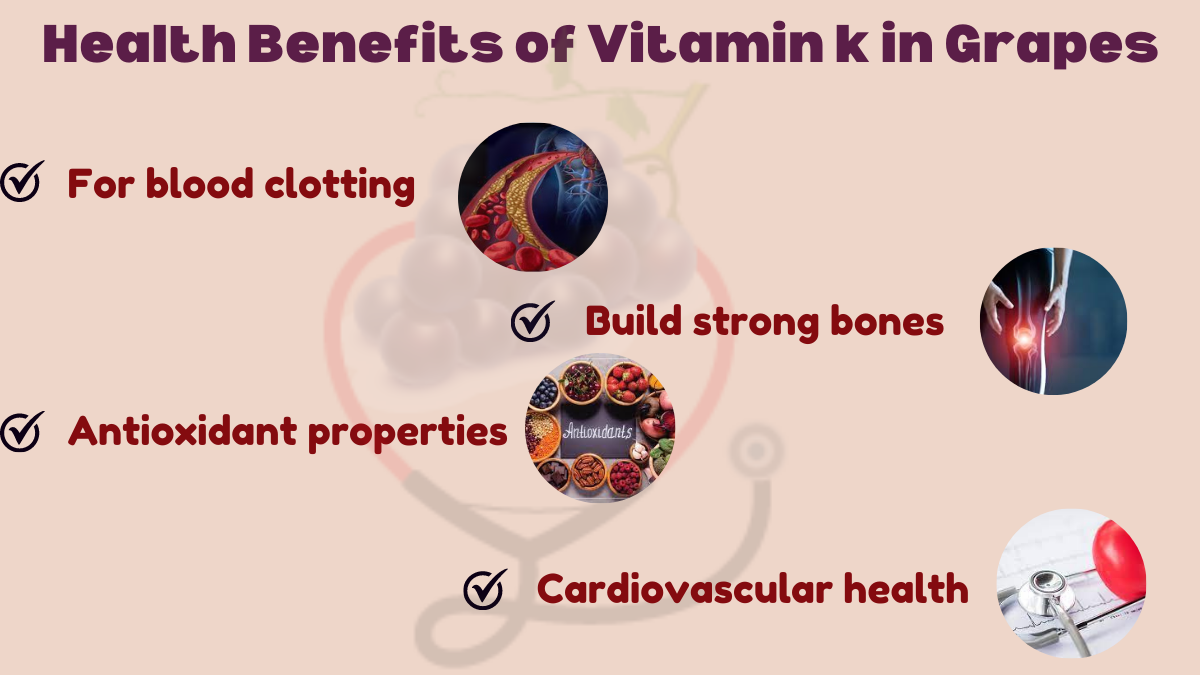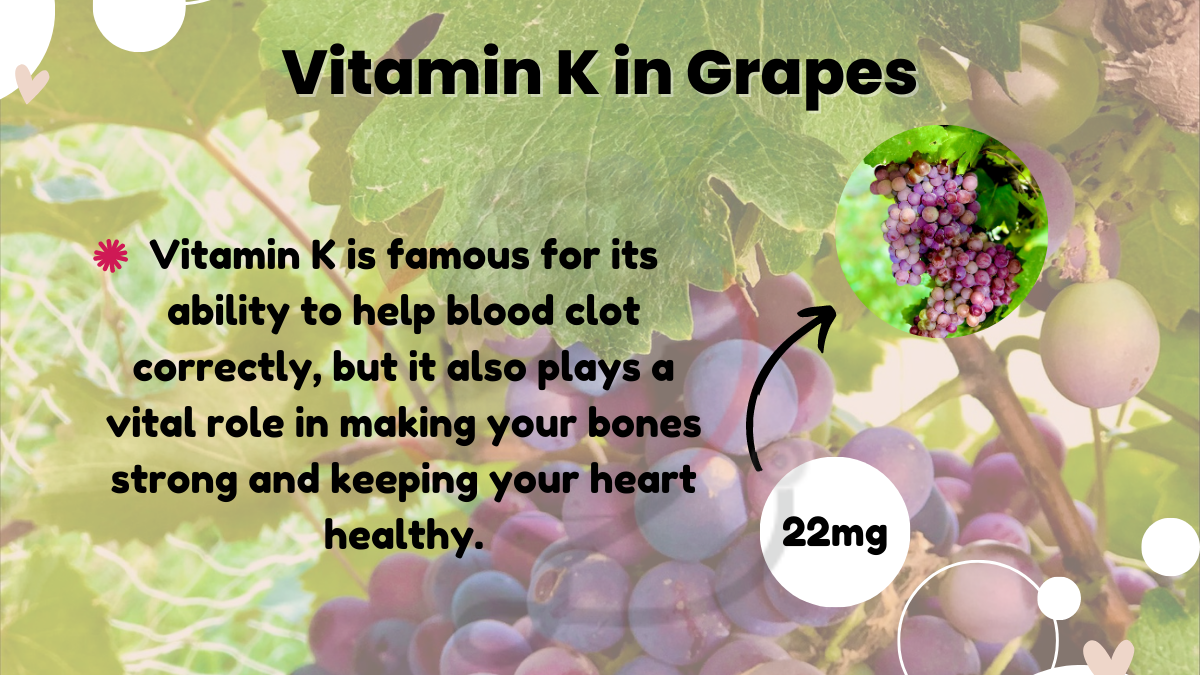Grapes are a source of vitamin K, which is a type of vitamin that dissolves in fat. When you eat grapes, your body stores this vitamin in fatty tissues and the liver. [1]
Vitamin K is famous for its ability to help blood clot correctly, but it also plays a vital role in making your bones strong and keeping your heart healthy.
In this article, we’ll take a closer look at the benefits of Vitamin K in grapes, its sources, and how much you should consume daily.

Types of Vitamin K
There are two primary types of Vitamin K: Vitamin K1 (phylloquinone) and Vitamin K2 (menaquinone). [2]
Vitamin K1 is found in plants, while Vitamin K2 is produced by bacteria in the gut and found in fermented foods and animal products.
Benefits of Vitamin K in Grapes
Aside from its role in blood clotting, Vitamin K has several health benefits. In grapes, it helps promote healthy bone density, supports cardiovascular health, and improves brain function. [3]
While grapes are not particularly rich in vitamin K compared to some other foods, they still offer several benefits related to this nutrient.

Here are some of the potential benefits of vitamin K in grapes:
1: Blood clotting
Vitamin K is necessary for blood clotting, ensuring effective clot formation and preventing excessive bleeding. [4] While grapes are not a major source of vitamin K, they contribute to meeting your daily requirements.
2: Bone health
Vitamin K helps build strong bones by aiding protein production for bone mineralization. [5] While grapes have low vitamin K content, including other vitamin K-rich foods in your diet supports overall bone health.
3: Antioxidant properties
Grapes contain antioxidants like resveratrol, flavonoids, and polyphenols in their skins and seeds. These compounds have anti-inflammatory and antioxidant properties, protecting the body from oxidative stress. [6]
While vitamin K lacks antioxidant properties, grapes provide a variety of beneficial compounds.
4: Heart health
Vitamin K may benefit cardiovascular health by lowering the risk of cardiovascular disease and blood vessel calcification. [7]
The evidence is not conclusive; adding grapes to a heart-healthy diet with nutrient-rich foods can be beneficial.
Sources of Vitamin K in Grapes
- Grapes are a good source of Vitamin K1, with the highest concentration found in the leaves and skins.
- The darker the grape, the higher its Vitamin K content.
- Red grapes, for example, contain more Vitamin K than green grapes.
How much Vitamin K do Grapes contain?
The amount of Vitamin K in grapes varies depending on the type and preparation. On average, a cup of red grapes contains about 22 micrograms of Vitamin K1.

Daily Intake of Vitamin K in Grapes
The recommended daily intake of Vitamin K for adults is 90-120 micrograms per day. [8] While grapes alone may not provide enough Vitamin K to meet this requirement, they can be a healthy addition to a balanced diet that includes other Vitamin K-rich foods.
Grapes are a nutritious fruit that provides a variety of vitamins and minerals, including Vitamin K. This essential vitamin plays a crucial role in bone and cardiovascular health and can also benefit brain function.
While grapes alone may not provide enough Vitamin K to meet the daily requirement, they can be a healthy addition to a balanced diet that includes other Vitamin K-rich foods.
FAQs
Can you get enough Vitamin K from eating grapes alone?
Grapes are a good source of Vitamin K, they may not provide enough to meet the daily requirement. It’s best to include other Vitamin K-rich foods in your diet as well.
What are the symptoms of Vitamin K deficiency?
Symptoms of Vitamin K deficiency may include easy bruising, bleeding gums, and prolonged bleeding after injury or surgery.
Who is at risk of Vitamin K deficiency?
Infants who are exclusively breastfed, people with malabsorption conditions, and those taking blood-thinning medications are at a higher risk of Vitamin K deficiency.
Can Vitamin K supplements interact with medications?
Yes, Vitamin K supplements may interact with certain medications, such as blood thinners. It’s crucial to consult with a healthcare provider before taking any supplements.
What are the side effects of Vitamin K supplements?
High doses of Vitamin K supplements may cause adverse effects, such as nausea, vomiting, and allergic reactions.

